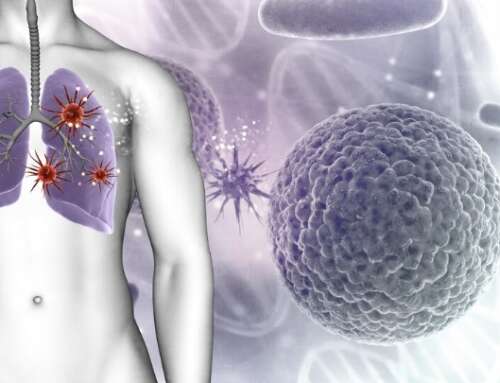
Small Cell Lung Cancer (SCLC) is a serious form of lung cancer that demands immediate medical attention and careful management. While the symptoms of SCLC are often widely recognized—persistent cough, chest pain, and weight loss—there’s a less obvious, yet critical, condition that can complicate things further: hyponatremia. When SCLC causes a drop in sodium levels in the blood, it can lead to a dangerous condition known as hyponatremia.
What Is Hyponatremia and How Does It Relate to Small Cell Lung Cancer?
Hyponatremia occurs when the sodium levels in your blood become too low. Sodium plays an essential role in regulating the balance of fluids in your cells and tissues. When this balance is disrupted, it can lead to serious complications, including seizures, confusion, and even coma.
For patients with small-cell lung Cancer, hyponatremia is a common complication, particularly because the cancer often secretes a hormone called antidiuretic hormone (ADH). This hormone can cause the body to retain excess water, diluting the sodium levels in the blood and resulting in hyponatremia.
The Early Warning Signs of Hyponatremia in SCLC
It is essential to watch for the early signs of hyponatremia, as they can be subtle. Recognizing these symptoms early can help prevent further complications. Here is what to look out for:
- Confusion and Disorientation: If you notice a loved one becoming confused or disoriented without an obvious cause, it may be related to hyponatremia.
- Frequent Headaches: Unexplained and frequent headaches can be another sign that something is wrong with the sodium levels in the body.
- Nausea and Vomiting: These symptoms can quickly escalate and worsen, leading to dehydration if left untreated.
- Fatigue and Weakness: Constant fatigue and generalized weakness are common signs that sodium levels are dangerously low.
- Muscle Cramps and Spasms: Hyponatremia can cause muscle cramps, which could be mistaken for something less serious.
- Severe Cases of Hyponatremia: In advanced cases, symptoms such as seizures, loss of consciousness, or respiratory difficulties may occur, signaling the need for immediate medical intervention.
When Should You Seek Help from a Specialist?
If you or someone you know with Small Cell Lung Cancer shows any signs of hyponatremia, it is crucial to consult with a specialist immediately. Early intervention can significantly reduce the risk of long-term complications, including brain damage and organ failure.
An oncologist or a physician specializing in internal medicine can assess sodium levels and determine the underlying cause of hyponatremia. If the issue is linked to Small Cell Lung Cancer, treatment options may include adjusting medications, IV sodium correction, and other supportive therapies.
Summing Up:
At FLASS (Florida Lung, Asthma & Sleep Specialists), we know that the journey with Small Cell Lung Cancer is challenging. It is about more than just treatment; it is about giving you the care and attention you deserve every step of the way. Hyponatremia can be a hidden complication, but with the right help, it can be managed. Our team is committed to providing you with the most comprehensive care and advice, so you never have to feel alone in your fight.
Reach out to FLASS today and let us guide you through every stage of your health journey. The support you need is just one call away.


